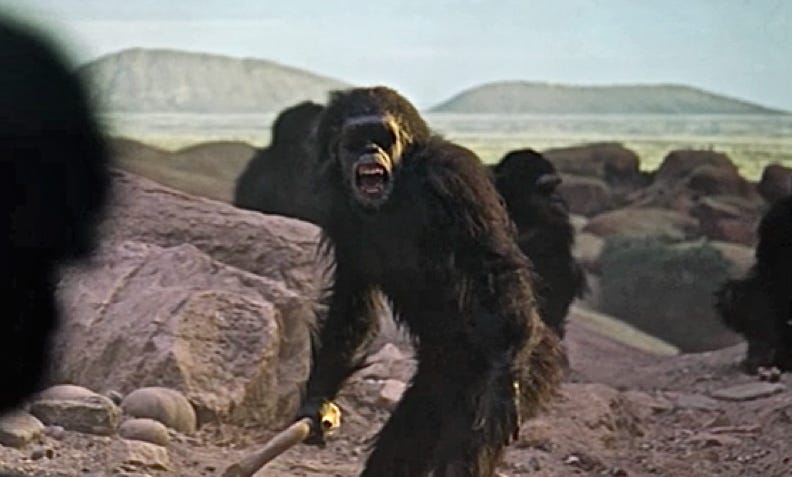Stanley Kubrik’s 2001: A Space Odyssey opens with a scene of apemen living among warthogs. One of the apemen discovers a bone and realizes he can use it to win power. He beats one of his group members to death with it and scares the rest of the pack into submission.
The scene ends when the brute tosses his weapon away, in an apparent ethical insight that such powerful weapons ought not to exist. But in reality, we all know what really happens. Having seen the weapon’s use, others will scramble to find a similar weapon or to take the brute’s weapon away from him.



